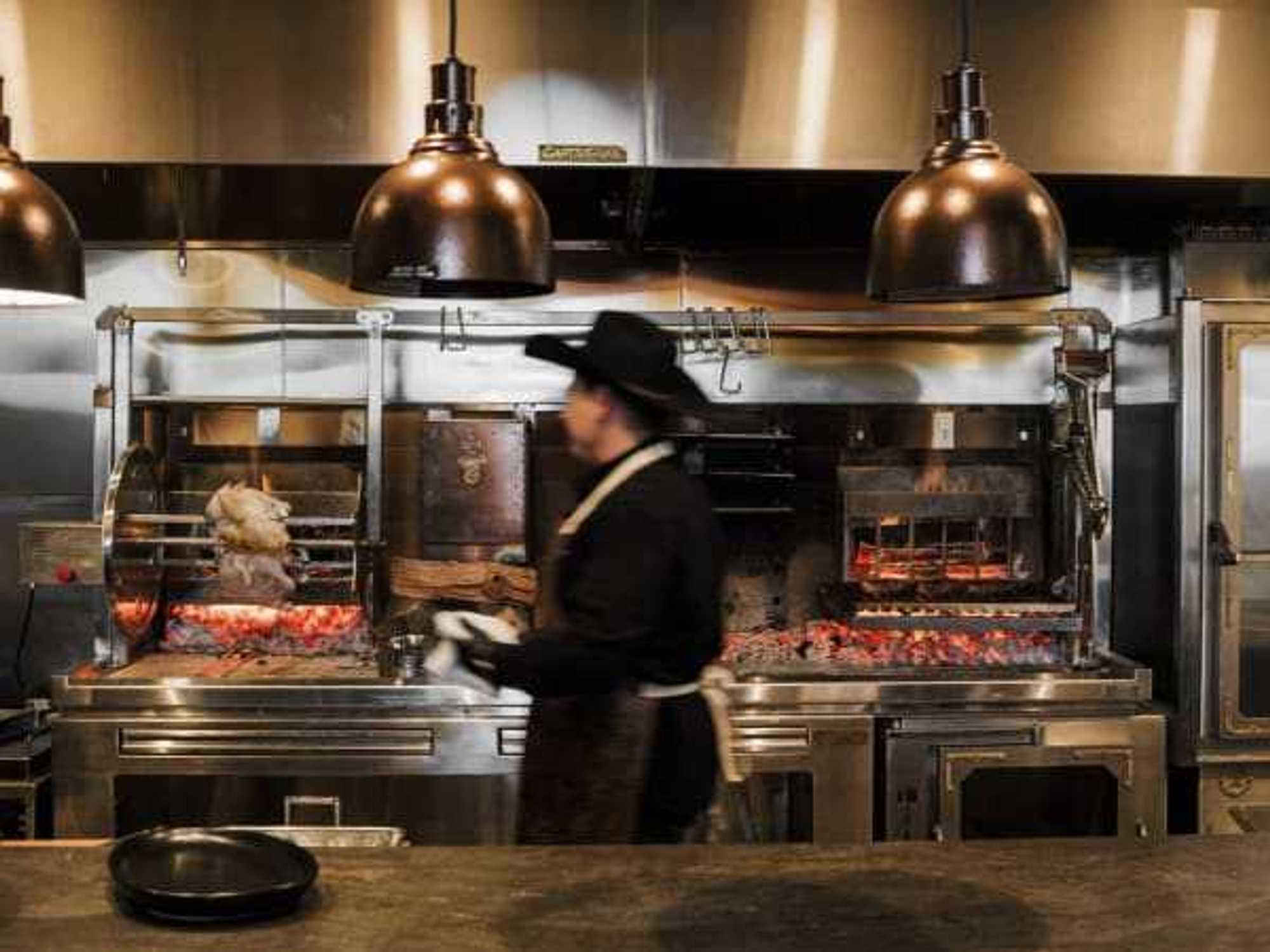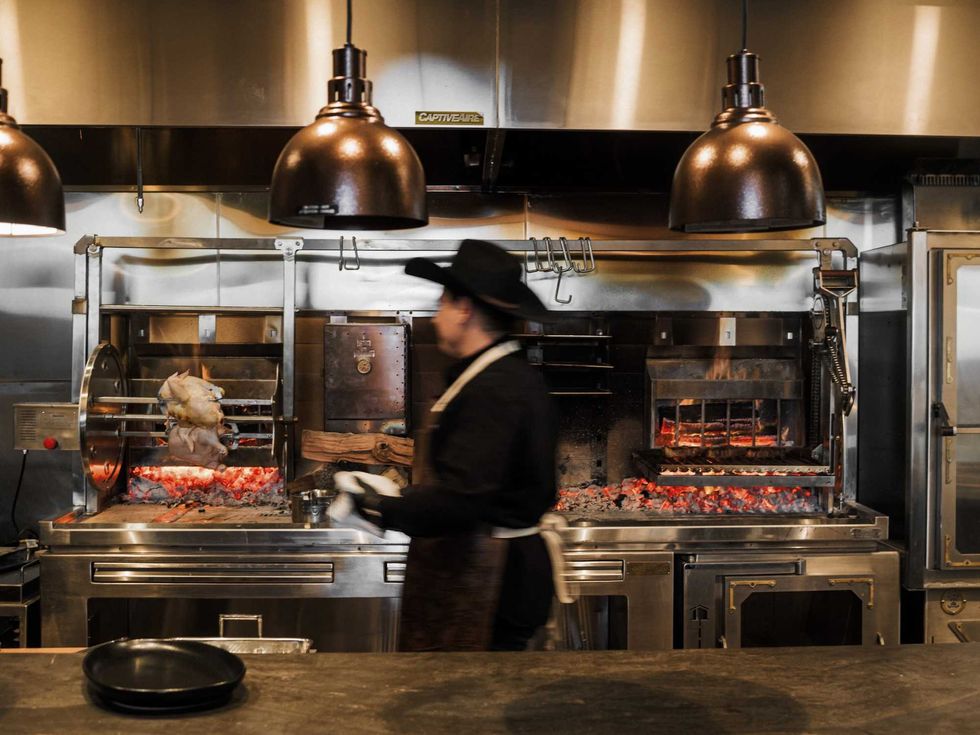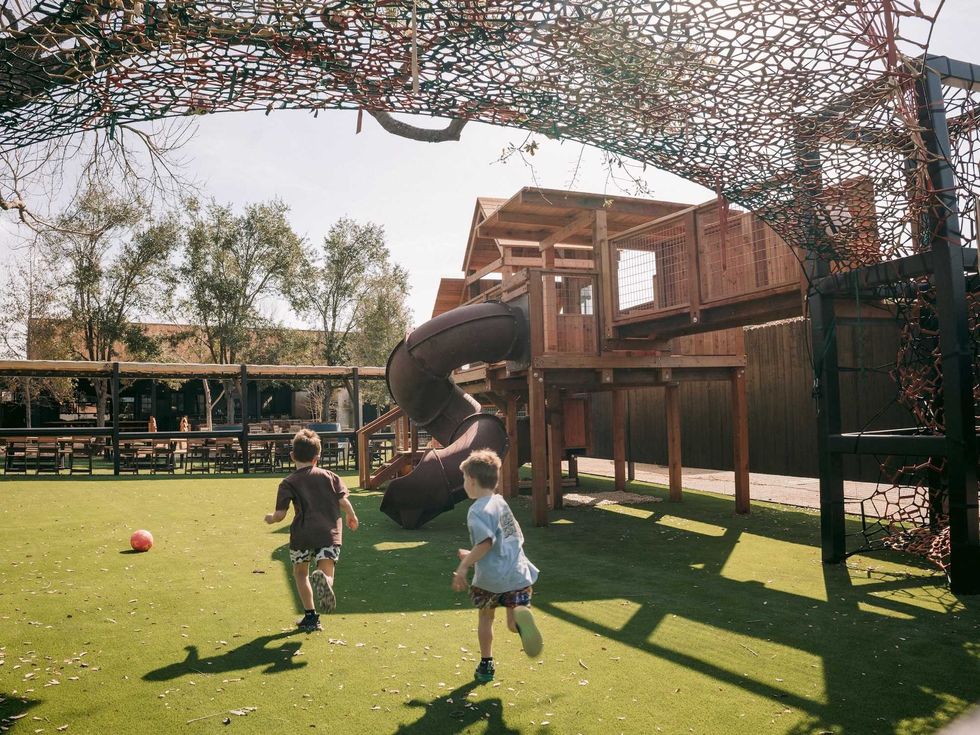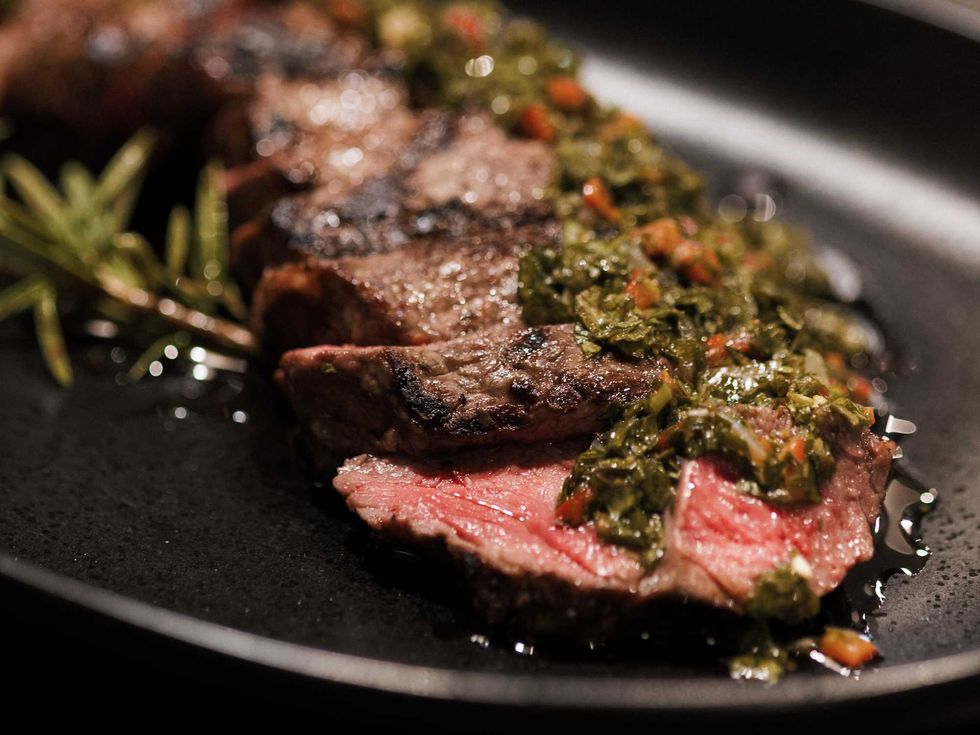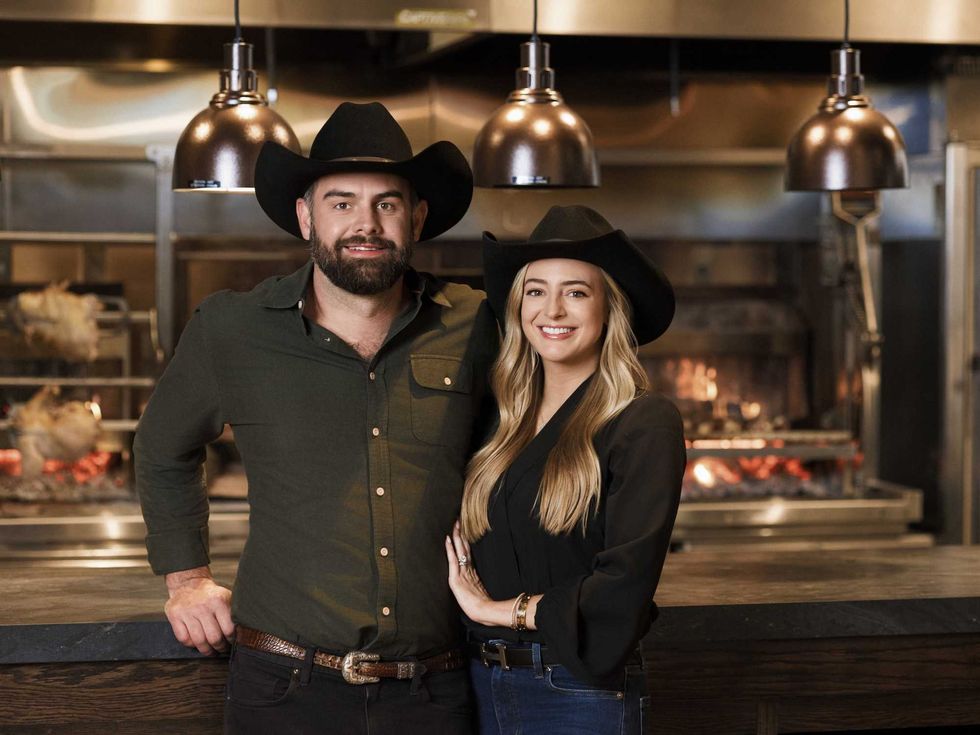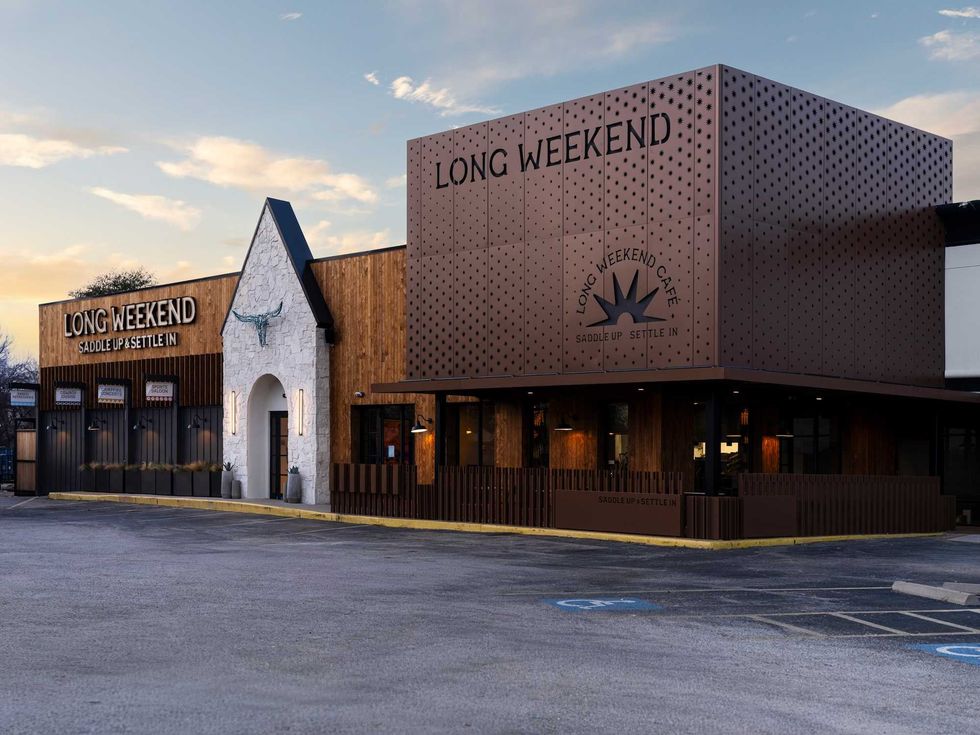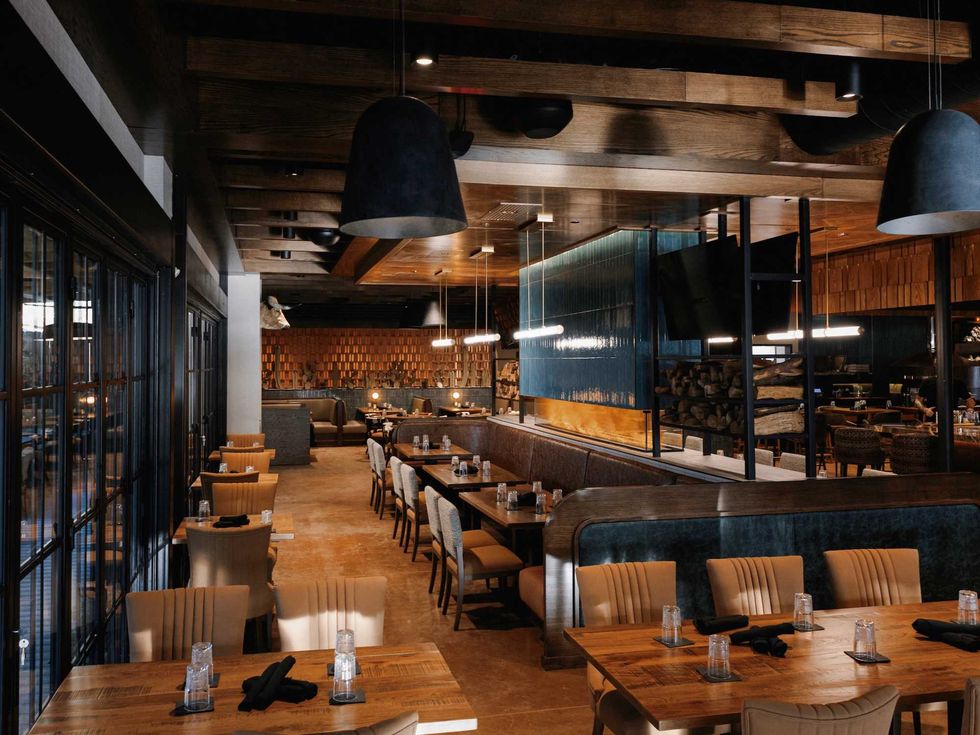wine industry roundtable
Chris Shepherd and Napa Valley experts discuss what's next for wine

Chris talked to Cat Bill, Euming Lee, Tegan Passalacqua, Ikimi Dubose-Woodson, and Kim Vallejo.
I spent last week in Napa with members of the Southern Smoke Foundation team to learn more about the beverage industry and how we can better support them with our resources. In addition to a fundraiser at Farmstead with six of my favorite chefs and six of my favorite wineries, we hosted an industry roundtable to talk about the state of the wine industry now with some of the industry’s brightest minds.
We selected the panelists to represent various aspects of the industry — Euming Lee, brand manager at Robert Mondavi Winery, one of the most iconic wineries in the valley that’s owned by one of the largest beverage companies in the world; Ikimi Dubose-Woodson, co-founder of The Roots Fund, which provides education and resources to people of color in the wine and spirits industries; Tegan Passalacqua, winemaker of Turley and winemaker/proprietor of Sandlands, his own label; Kim Vallejo, clinic director at Cal Lutheran University, our California mental health partner; and Cat Bill, Southern Smoke Foundation’s Chief Mission Officer.
What did I and the roundtable attendees learn? So much. The wine industry and Napa Valley in particular is in a transitional period right now — people are drinking less post-pandemic, especially Gen Z; natural disasters are driving people out of the valley and eating into both profits and employee compensation; and everyone is stressed and anxious, which emphasizes the need for mental health services.
We recorded the conversation and had it transcribed below so you can learn everything we discussed last week. A huge thanks to the panelists for sharing their knowledge and perspectives with us, as well as our partners who gave us the opportunity to host the roundtable — Robert Mondavi Winery, OpenTable, Yeti, Illy, and S. Pellegrino.
So let’s get into it!!!
Chris Shepherd: In the wine industry, you guys are seeing more and more disasters out there. We have hurricane season. You guys have a different kind of season out here, which we're getting into as well — fire season. How are you seeing the impact of people living in this area and owning a business, running a business, being in the wine business. What does that look like these days?
Tegan Passalacqua: One of the big issues, and I think we're starting to see it now, is there are so many people that are running businesses here without the real mindset of making a profit. And I think that was all fine and dandy until we started seeing natural disasters and being like, oh, I'm looking at a couple hundred thousand dollars a year with my vineyard. When people start losing whole vintages and it's not their game plan to make money, it's really been putting a squeeze on people. You know, the people actually doing the work. One of the largest wine companies just filed for bankruptcy today. With a lot of the fires that have been happening, it's too early to tell really what that means for Napa Valley.
I think it's probably going to change the varieties that are planted here and what can be grown here. It’s going to push people out of the industry. People have PTSD from the fires. It’s not worth it to live [in Napa] anymore. When I grew up here, I grew up with a lot of people who had homes in Napa. They were just everyday folks that lived a better life. And now that's not really a possibility. It's harder to get interns because you can't even find housing for them. Housing is probably the biggest issue that we're dealing with in Napa Valley and bringing people in. And if we want to be more inclusive, bringing people that make $3,500 a month working eighty hours a week with $3,000 a month in rent. It’s hard to reconcile.
Euming Lee: We're fortunate that we're part of a larger organization. And if we need to reinvent portfolios we can. In businesses that we have access to, we can offset those losses to some degree. But when you look at a lot of our peers around us, you don't get that, and we've got to find a way to help our community. Second, if we all start to disappear one by one, that’s not good. At the end of the day, we need to come together as a community and ensure that, as a valley, that we're unified and that we can help each other out. And I think, at least for me, in the short time that I've been a part of this incredible winery, that's really been a big part of my inspiration.
It's an opportunity to learn a lot of what Mr. Mondavi had done. He did that in the ‘60s. And I feel like we've lost a big part of that. It's something that we're striving for.
Chris Shepherd: Let’s talk about the Roots Fund.
Ikimi Dubose-Woodson: We’re focused on helping communities of color get education, mentorship and careers in the wine industry — and now the spirits industry.
We all know about buying power. What a millennial versus a boomer versus people collecting wine for years are looking for. And you have my niece who works for a tech company that drinks canned wine because she thinks it’s superior. She thinks bottles are for old people. We're thinking when we model this organization, how do we continue to get opportunities for an inclusive people to come into the valley, come into these places and create a space where folks want to come out and visit?
We have about 225 scholars, which some people say is not a lot, but it is a lot because our organization offers support.
We’re starting to create an ecosystem again, starting with young people. The Roots Fund spent $47,000 for two and a half months of rent for our scholars. That’s one of the biggest obstacles we see here — the entry level worker. Everyone wants to come here. We have scholars who are renting at $3,000 a month, and they're making $1,300. And our organization is supplementing the other things, whether it's the transportation support, mental health services.
I love that Chris [and Southern Smoke Foundation] is expanding mental health services. Let's work smarter, not harder. How do we support communities of color and make sure they feel supported and educated? This community can really thrive when they have the tools they need, and folks come out to support.
Kim Vallejo: For our Southern Smoke clients, diversity, inclusion and equity is huge. People feel like they can't be who they are. They can't express who they are. And so they kind of come in with this fake persona and come to us to help with that. People in this industry love what they do. They're passionate about what they do, but they also want to be accepted for who they are. A lot of the business owners want to incorporate diversity and equity, but are scared in the community to do that..
Chris Shepherd: For me, one of the greatest things is that a lot of you in here are employers, have staffs. I know from having restaurants for most of my life that if there was ever something that my staff came to me and said, hey, my bike got stolen or I can't pay rent, I wanted to help. But that's a bad precedent to set, right? We all want to take care of our staff. But also that's what Southern Smoke is here for. That's what we do.
Another question: Are you guys concerned with the decrease in overall wine consumption?
Tegan Passalacqua: We're definitely worried about it. Although I will say, we’re 104 days away from the election so consumption may be going up. Consumers only have a finite amount of disposable income. After the pandemic, you start to see Europe open up, Asia open up, and people are choosing to travel all over the world. We've got to figure out how do we make ourselves relevant again.
We all benefited from the pandemic to a point since people were drinking more than normal, but now we're being tested and we've got to figure out ways to make what we do more accessible. And I'm sure you all feel how challenging it is for people to come visit because we're pricing people out of this marketplace, and it's just really challenging.
We have to take a step back and realize that we are not the average consumer. We get access to a lot of things that so many people don't. The lowest priced wine we have is 50 bucks. Do you realize how many people don’t buy $50 bottles of wine?
Wine shipping rates came out a few days ago that shows that it's basically flat from a year ago. But the average bottle price is up and it's $36.27. You think of how many bottles of wine you can get in Napa Valley for $36.27. It's definitely below 5 percent.
A lot of people I grew up with in Napa want to stop paying $20 for a hamburger — there's only one place in Napa that I don't have to pay $20 for a burger. And they definitely don’t want to pay $17 for a glass of rosé.
Euming Lee: At the end of the day, what we really care about is the consumer experience. If they come to the winery and have a world class experience, guess what? When they go back to wherever they're from and they go to a restaurant, they see our wine on the list. They're going to order it. When they’re running to a friend's house for dinner, and they swing by the local store, they see our bottle on the shelf, and they've got five seconds to make a decision. They're going to pick up the bottle with a label they know. There should be enough for all of us to win. But I think the biggest challenge is that not everyone believes that, and it takes the whole industry to buy into that for us to really move that agenda forward. I don't know if we'll ever get there.
I like to be an optimist, so I'm hoping that we will. But there's a lot of work that we need to do. I think in terms of the education piece and what consumers want, we have to figure out quickly when people come to visit us, who wants to be educated and who doesn't, because not everyone coming into your tasting room wants to have this 90 minute experience. Some people do want to come in and learn, engage, and ask you questions. Other people want to come in and just want you to pour the wine so they can have a good time with their friends. And that's where it becomes our investment in our team, our people, our training, so that people understand that when people come through the door, you know how to pick up on that quickly and adjust the way that you're delivering that experience so that they become fans of yours for life.
Kim Vallejo: So you hear the theme of anxiety. I mean, the pressure is overwhelming to just run the business. Because everything spills over into your personal lives, right? You have a life outside of your job, believe it or not. That’s where we want to help because a lot of the things that we see — partners, children, ailing parents — that you have to also think about and take care of. And as Chris said, we don't have a waiting list. We can see you. We talk to you, it can be telehealth, it can be on your schedule. And whenever you need that help. But it is an overwhelming feeling. And like I said, I feel it too in here. I can't imagine what you all go through and what you're all dealing with.
Chris Shepherd: Two words. You good? Ask a few times, you know, because you can see it in people's faces. And then it's at that point when your team says, no, it's really tough. And then the next statement is that I’m not qualified to hear what you’re about to tell me. And then I will connect you with Southern Smoke because people like Kim are qualified to hear from you.
Chris Shepherd: Ikimi, why did you decide to move into spirits with The Roots Fund?
Ikimi Dubose-Woodson: It wasn't ever a desire to get into spirits. I've found that our hospitality folks in the restaurant and retail spaces were being asked to step down from their roles and being pushed out of their roles as wine directors. You don't see wine directors as much as you see beverage directors in restaurants, so our scholars need to learn both to be successful. We went into spirits really as a need to help the restaurant folks continue to be desirable in the market. We launched a partnership with Wine Spirits Education Trust. About 25 percent of our scholars are from Napa Valley restaurants that have reached out to us about spirits education.
Chris Shepherd: I’ll ask each of you—what are you excited about right now?
Euming Lee: I'm excited about a lot of things. If I tap into the brand marketing side of it, I’m curious to see what new thing comes in the world of social media. And when it happens, are we going to be ready for it? Are we going to be able to take advantage of it? Are we going to be able to maximize the opportunity and get rejuvenated and provide more visibility into what we do? Letting people know what we do not just as a winery, but as a team in our community.
Tegan Passalacqua: I think the thing that I'm most excited about is dealing with climate change. When the environment changes, people are going to start asking, why can't I get that anymore? Why can't I do this anymore? And I think the issues that come up in grape farming, you think of smoke taint, drought, heat spikes and the big thing that people really don't talk about is the spread of virus. We’re not going to have any chance of fighting these issues unless we do it together. We’re really going to have to start to embrace community more due to climate change — you need to care about your neighbors. There’s not an invisible line on the property to stop problems from crossing over. I think it’s time to bring people back together to fight the adversity together.
Ikimi Dubose-Woodson: I'm excited about what Napa can become. And I'm excited for the people in the room that I've seen today that support our work. I'm happy Southern Smoke is here—it means a lot to me personally, coming from a culinary background and knowing that they look at food and beverage workers as a whole, there's no gray area. I'm not going to sit here and pretend like we are moving at the speed of light in Napa, but I'm excited that it's happening, that there are people who care about it and want to keep their businesses vibrant. You know, looking at all those things to continue to move and see what this world will look like very soon.
Cat Bill: There's so much passion in this room. You all are the experts in wine and food and hospitality and service. We're the experts in being in service to you all. So what I'm most excited about is the awareness that’s growing about what we do.
---
Chris Shepherd won a James Beard Award for Best Chef: Southwest in 2014. The Southern Smoke Foundation, a nonprofit he co-founded with his wife Lindsey Brown, has distributed more than $11 million to hospitality workers in crisis through its Emergency Relief Fund. Catch his TV show, Eat Like a Local, every Saturday at 10 am on KPRC Channel 2.
